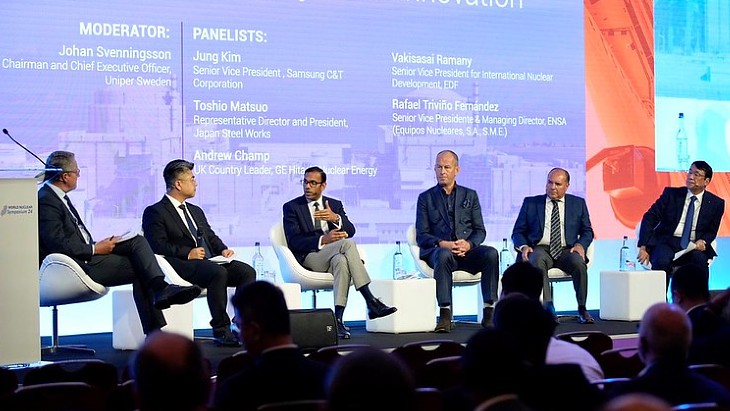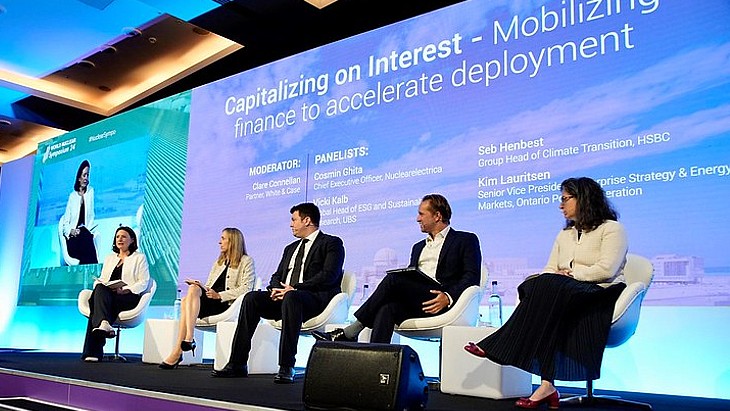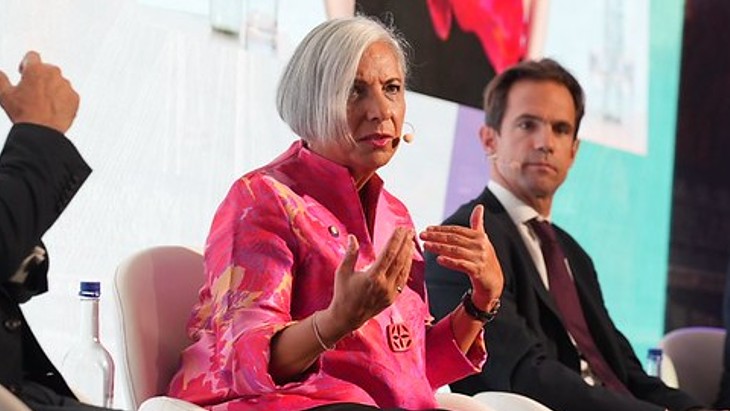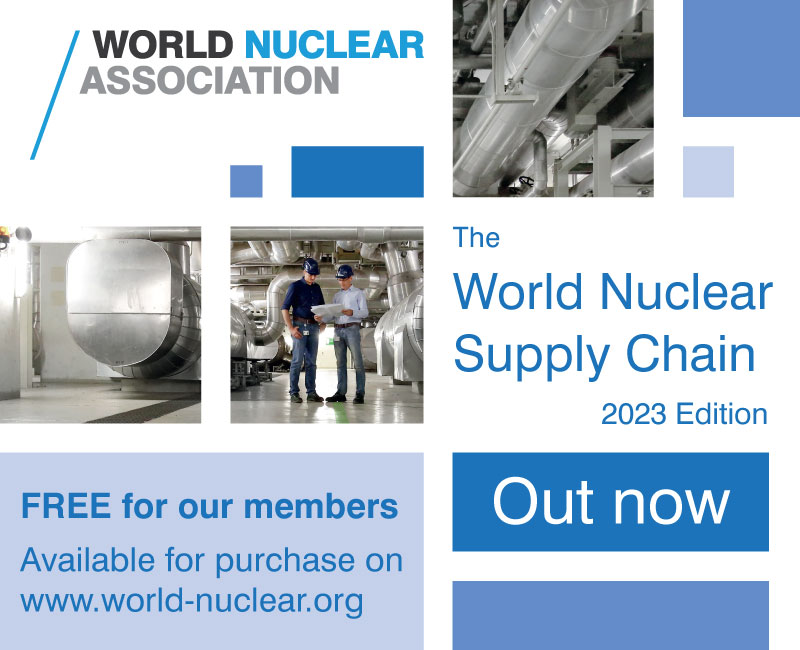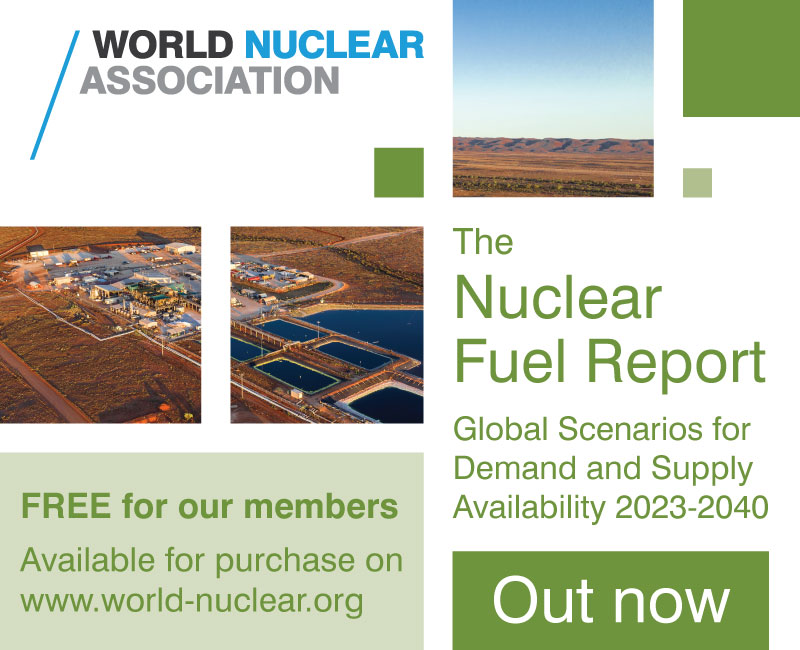Viewpoint: Turkey’s ambitions as a nuclear energy player

Nuclear electricity generation capacity in Turkey, the Middle East and Africa is expected to increase rapidly in the next two decades thanks to the completion of existing projects and projected construction agreements between countries in the region and nuclear vendors.
Accounting for more than 95% of electricity production, fossil fuels are the primary resources for all these countries' current energy needs. The growth in nuclear power capacity in the region will lead not only to reduction in dependence on these sources, but also ensure energy security and meet increasing energy demand from population and economic growth.
Nuclear energy provides clean, stable, reliable, and cost-effective electricity. As a carbon-free baseload energy source, nuclear energy serves an important role for the decarbonisation of the economy and achieving supply stability in Turkey where energy security is a vital issue for its strategic position in the region.
Within the framework of the Turkish National Energy Plan, the electricity to be produced from nuclear power plants in Turkey will reach 11.1% of the total production by 2030. The Turkish government says the country's energy portfolio will include the conventional nuclear power plants under construction and planned. Additionally, small modular reactors (SMRs) are on the agenda.
The Akkuyu nuclear power plant (NPP) on Turkey’s Mediterranean coast will be the first nuclear power plant for Turkey, and is expected to have an installed capacity of 4800 MWe. The first of four units now has its fuel on site - coinciding with the 100th anniversary of the founding of the Republic. Akkuyu NPP, when completed, will employ about 4000 people during its operation phase. The estimated contribution of the power plant to Turkey's gross domestic product over its entire life-cycle is approximately USD50 billion.
Two devastating earthquakes centred in Turkey’s southern province, where the Akkuyu project is located, struck in February this year. However, there has been no damage to the Akkuyu nuclear power plant being constructed in Mersin, Gulnar district. According to statements from Akkuyu NPP, the experts did not detect any damage to the buildings, equipment, and cranes. Construction and assembly work continues..
The economic vitality created by the Akkuyu NPP, which Russian state atomic energy corporation Rosatom is constructing, attracts attention. The project, which has become one of the largest employment centres in the region during the construction process, has set an example of successful localisation with its supply chain of more than 400 Turkish companies.
Turkish manufacturers are supplying a wide range of equipment from valves to pipes, storage tanks, reinforcing steel and various construction materials. Cables, heat and water insulation materials, cable trays, building materials, fire-resistant products, paints and coatings, brick products, stainless steel materials are also supplied by Turkish manufacturers. Thanks to Akkuyu, Turkish companies are gaining great experience in how and which materials should be manufactured in the nuclear field. Thus, Akkuyu NPP not only contributes to employment, but also creates 'know-how' in the Turkish nuclear energy sector.
A solemn ceremony dedicated to the delivery of the first batch of nuclear fuel for the first nuclear power plant in Turkey was held at the construction site on 27 April. This historic event marked the entry of the Republic of Türkiye into the community of countries developing nuclear generation technologies on their territory.
Recep Erdoğan, President of the Republic of Türkiye, and Vladimir Putin, President of the Russian Federation, took part in the ceremony via videoconference. Rafael Grossi, director general of the International Atomic Energy Agency, Fatih Dönmez, Minister of Energy and Natural Resources of Turkey, Alexei Likhachev, director general of Rosatom, Anastasia Zoteeva, CEO of JSC Akkuyu Nuclear, and other official guests attended the event.
The Akkuyu NPP is the first project in the global nuclear industry being implemented according to the Build-Own-Operate model.
Regarding supply chain, Turkey is monitoring the example of the United Arab Emirates which is deploying four Korean-designed APR1400 reactors at the Barakah site - with three of these units now online. To date, more than 2000 UAE companies have secured contracts totalling more than USD4.8 billion for a range of products and services to support Barakah. The percentage of local content is rising. A UAE cable manufacturing company, Ducab - which provided electric cables to Barakah NPP - has even exported its product back to the Korean market.
Targeting its 2053 zero-carbon goal, Turkey will continue to increase its nuclear capacity soon. Negotiations continue for the second nuclear power plant, which is planned to be in the country’s north. The Turkish government remains in contact with Russian, South Korean and USA-based nuclear vendors. For the third nuclear power plant project, communication with China and South Korea has taken place. Moreover, the Turkish government is looking at SMR technologies which could be a game-changing technology for the country’s energy market. Turkey is also looking at Generation IV reactors based on indigenous thorium resources.
Turkish companies have sufficient knowledge, ability, and experience in manufacturing and construction sectors. Therefore, we, as NIATR, believe that our industrialists can take important roles in the equipment supply chain for nuclear power plants not only in Turkey but also in the region. Many neighbouring countries, including Bulgaria, Romania, Egypt, Jordan, the United Arab Emirates and Saudi Arabia are either embarking on, or expanding, their nuclear power programmes.
In this regard, NIATR along with Ankara Chamber of Industry and with Ministry of Energy and Natural Resources support and the Association of Organizations of the Construction Complex of the Nuclear Industry are organising Nuclear Power Plants V Expo and IX Summit (NPPES) to be held on 21-22 June, in Istanbul, which will welcome leading companies in the international nuclear market, industrial associations and government bodies. International nuclear industry players will meet with the Turkish industrialists in the fair area to negotiate opportunities for nuclear energy investments. The summit will include special sessions for Akkuyu NPP’s suppliers and practical B2B meetings traditionally attended by hundreds of Turkish people in business. Tender opportunities for the construction materials of Akkuyu NPP will also be announced at the NPPES for local and global industrialists.
In conclusion, Akkuyu and other nuclear power plant projects should be considered not only a power plant to meet the electricity needs, but also a tool to put the technological level of Turkish industry on a new step in the international arena. So, we are so pleased to bring together the leading representatives of the nuclear industry on a global scale in Istanbul at the NPPES.
